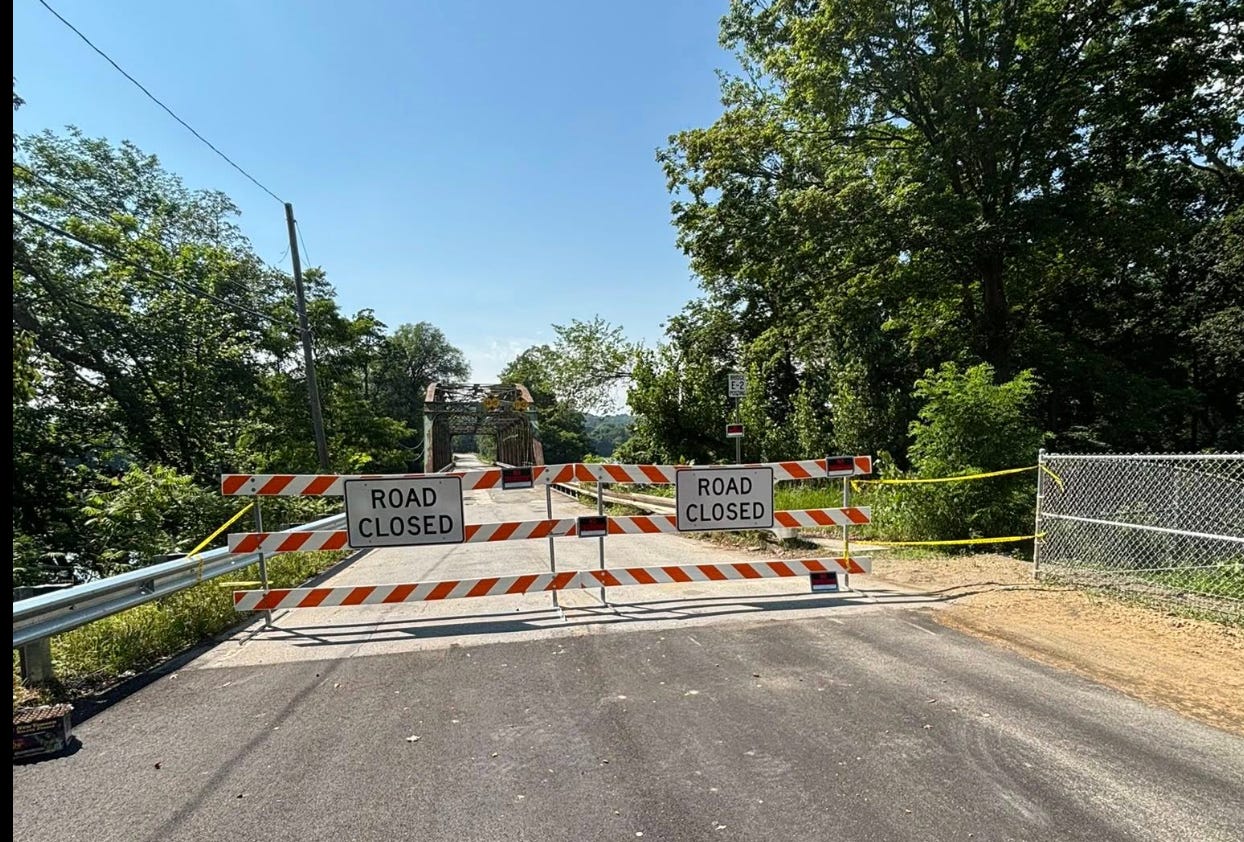New Hampshire Fights Back: How a Bridge Project Exposes the Granite State's Battle Against Vermont-Style Overreach
Regional recreation project hits a snag: New Hampshire resists Vermont's soft stance on homeless encampments while enforcing strict rules that block the fix—new housing.
For more than a decade, Brattleboro, Vermont, and Hinsdale, New Hampshire, discussed transforming two decommissioned bridges and the island between them on the Connecticut River into a shared pedestrian-biking trail. Cleanups led by Brett Morrison of Friends of Island Park fostered community support, and a planned July 4 celebration was meant to signal the project’s launch.
But when Hinsdale's town administrator, Kathryn Lynch, was told that trail development would be delayed one to two years, she warned: the inactive site could become problematic. True enough, homeless individuals from Vermont began camping on the island, followed by drug use, trash accumulation, and altercations. Volunteers made cleanup attempts, yet the risks mounted.
Citing the strain on manpower and finances, and concerns over long-term maintenance, Hinsdale and the New Hampshire Department of Transportation closed the bridges and island to the public. Lynch emphasized that while Brattleboro has resources, Hinsdale does not—and compensating for Vermont’s unintended consequences was unsustainable.
Complicating the situation, New Hampshire owns the bridges and land, meaning Brattleboro police lacked jurisdiction. Lynch described the situation as a drain—not only in resources, but in hospitality—and declared that they would not let Vermont's delays override New Hampshire’s interests.
On the broader stage, NH Transportation Assistant Commissioner David Rodrigue acknowledged that while the project sounded appealing in theory, it had become untenable in practice, reinforcing New Hampshire’s wariness of cross-state initiatives that constrain its control.
A Glimpse at Housing Policy Attitudes: New Hampshire vs. Vermont
** New Hampshire’s Regulatory Mentality**
The state legislature is advancing reforms aimed at dismantling restrictive local zoning—targeting “snob zoning” and enabling denser housing where needed. A bill to set maximum lot sizes for single-family housing has gained bipartisan support, while other proposals would remove local barriers to multi-family developments and accessory dwelling units. Gov. Kelly Ayotte has made housing a first-term priority, advocating for streamlined permitting and more housing production. VTDiggerGoverning+1
Yet, New Hampshire residents remain divided. While a majority sees housing as the most critical issue, only 38% support mandated zoning reform by the state—and 40% oppose it, reflecting local control sensitivities. New Hampshire Bulletin
** Vermont’s Default Position**
While not detailed in today’s sources, Vermont’s well-known approach centers on environmental and community protections, resulting in more stringent local review, enormous costs and never-ending deliberation.
Interpretation: Why New Hampshire Pushes Back
This isn’t merely about bridges or housing—it reflects deeper cultural and political divides:
Local autonomy vs. regionalism
New Hampshire’s resistance to actions that originate from Vermont—or that impose burdens on its communities—underscores its emphasis on self-governance.Pragmatic over idealistic
Where Vermont might slow projects for review, New Hampshire demands deliverables. When projects stall, it acts decisively to protect its interests.Resource-conscious mindset
With smaller towns and lean budgets, New Hampshire prioritizes protecting its finite resources—refusing to shoulder fallout from Vermont’s delays or policy choices.
In the end, the fate of the Anna Hunt Marsh Bridge project is less about bricks, steel, or trail maps, and more about a fundamental clash in philosophy. Vermont’s vision for a slow-moving, onerous and expensive redevelopment collided with New Hampshire’s insistence on guarding its autonomy, resources, and way of life.
The Granite State’s decision to close the bridges and halt the project sends a clear message: cross-border partnerships will only work if they respect the pace, priorities, and sovereignty of both sides—and New Hampshire won’t hesitate to pull the plug when that balance tips.




In more recent news, the NH Preservation Alliance votes ...
https://youtu.be/jSAADMjUZdo?si=OF3Ior5DHtSWqcCY